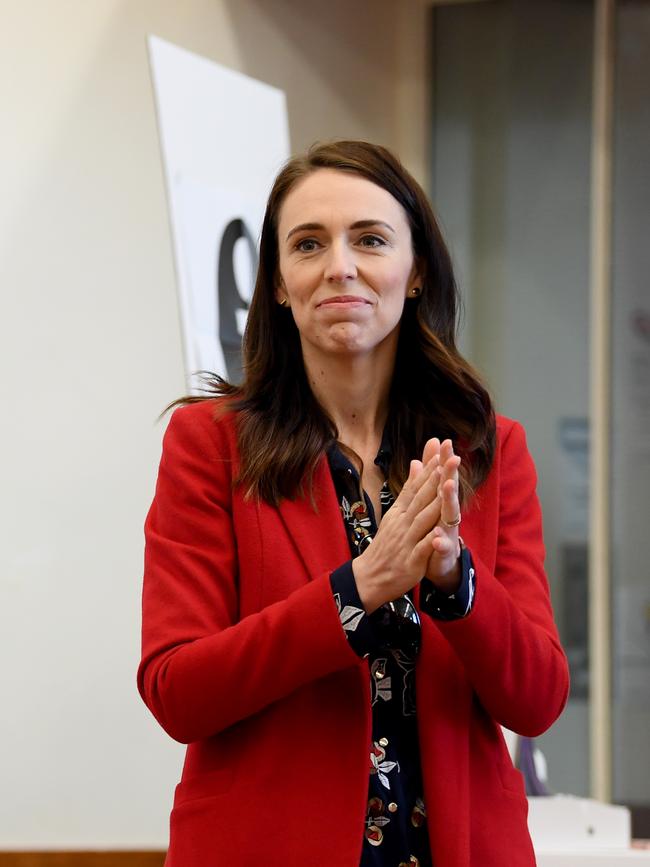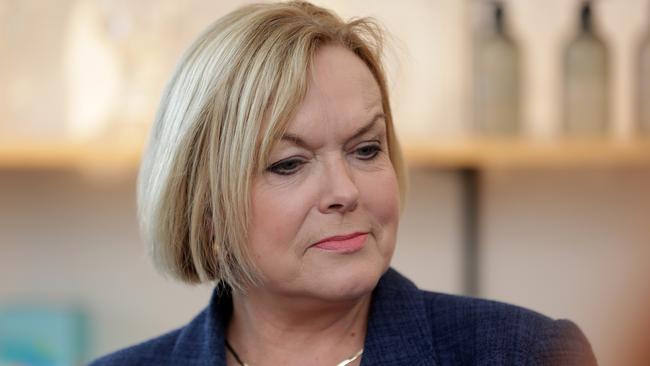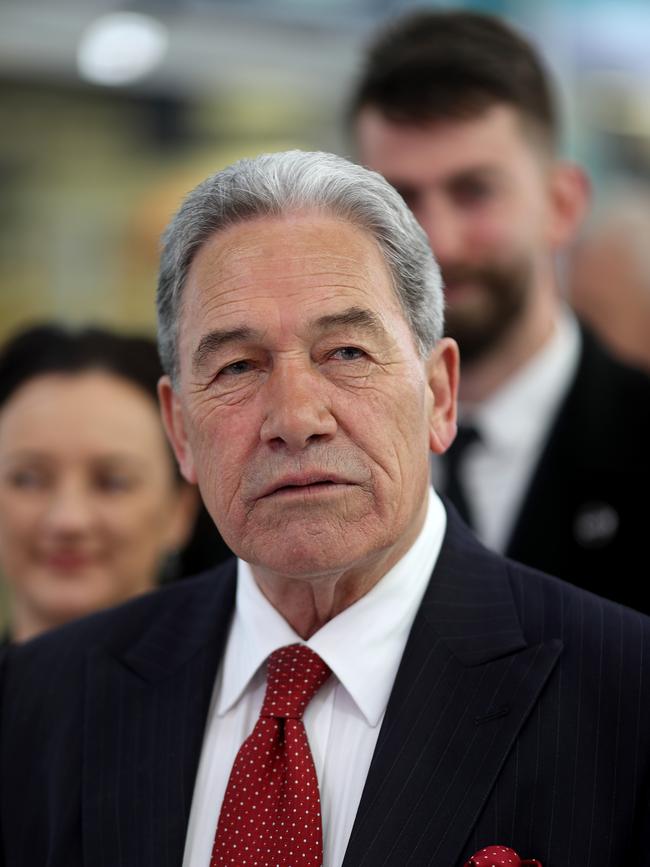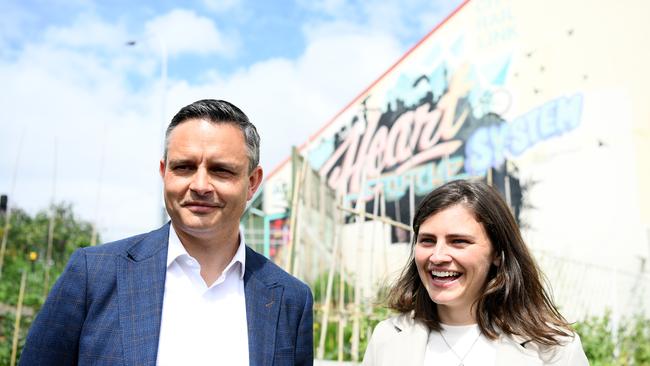NZ election: How a Labor-Green victory will transform Kiwi politics
When the votes are tallied today, NZ politics will be transformed.

In the traditional sense, New Zealand’s general election was never meant as a “change” election. Even so, change is afoot across the Tasman.
Voters are not expected to sweep aside Labour Prime Minister Jacinda Ardern after one term in office in the desire for something different. Quite the contrary, in fact. Ardern’s leadership during the COVID-19 crisis — the biggest issue in this election — has earned her the trust of New Zealanders, who do not want a change at the top amid uncertain times.
Yet, when the votes are tallied on Saturday, NZ politics will likely be transformed. That transformation is expected to usher in Labour-Green rule for the first time in the country’s history.
It will also likely bring down the curtain on the political career of 75-year-old Winston Peters — the current Deputy Prime Minister and Foreign Minister — who has been a dominant and seemingly immovable force in New Zealand public life for three decades.
Unless there is an 11th-hour swing against Labour, Ardern is set to retain power, with her party expected to triumph over the Judith Collins-led National Party.
Labour is on course to win its biggest share of votes in 30 years, while National is facing its biggest losing margin in 18 years.

The latest 1 NEWS Colmar Brunton poll — NZ’s most trusted political survey — taken two days ahead of the election, found Labour on 46 per cent with National on 31 per cent. This would give Labour a powerful governing mandate with 59 seats in parliament, two seats shy of a majority, while National settles for 40 seats. The Green Party, a government support party, and the right-wing ACT party were both on 8 per cent, yielding 11 seats apiece. Peters’s New Zealand First, Labour’s current coalition partner, climbed slightly to 3 per cent, but still short of the necessary 5 per cent needed to return to parliament.
The same poll saw Ardern’s popularity climb five points to 55 per cent in the preferred prime minister stakes, eclipsing Collins, who fell three points to 20 per cent.
Indeed, the popular Prime Minister is Labour’s most valuable asset. The party is now within striking distancing of being able to form the first majority government since the country’s proportional representation MMP system was installed in 1996.
But that system was not designed to deliver such governments, and establishing one will go against the will of the general populace. The most likely scenario is that Labour will get a plurality of votes and — in the likely absence of New Zealand First — seek the support of the willing Green Party to form a parliamentary majority.
It’s clear that without Peters to pull the handbrake on excessively ideological, or even bad ideas, a coalition consisting of the main forces of NZ’s political left will be the most progressive government the country has ever had.
The true shape of Labour-Green rule will become clearer during post-election negotiations. Naturally, the Greens will seek to extract political concessions at the table and seed their policy priorities in the government agenda. They are more likely to prosper in areas where Labour shares their sympathies, such as social justice, inequality and the environment.
But on matters of taxation, battle lines have already been drawn. The Greens insists on implementing their signature wealth tax, while Ardern has promised to reject the idea. The Greens want to tax assets over $NZ1m ($932,000) at 1 per cent and wealth over $NZ2m at 2 per cent.
Collins, stirring the pot, asserts Labour will break that promise as it has others in government, including the commitment to end child poverty and build 10,000 affordable homes to ease the housing crisis.
On climate change, a Labour-Green government will likely seek to accelerate domestic programs — and renewable energy — as it attempts to build a green economy and be more assertive abroad in advocating climate action.
Australia should brace for a harder diplomatic punch from the Labour-Green government on climate change, as well as on environment protection and refugee policy. Ardern will, of course, not sacrifice the trans-Tasman relationship on the new Labour-Green altar. But we can expect more blood to spill.
Collins has fought hard to peg back her party’s yawning polling gap with Labour and strip the saintly sheen from Ardern. As the campaign progressed, the instinctively confrontational opposition leader became increasingly so in holding her opponent to account.
Collins has repeatedly assailed the Prime Minister for the government’s handling of border security during the COVID-19 crisis.

“Who let COVID-19 in? I tell you who did, Jacinda Ardern and her government, they let it in,” the National’s leader reportedly told the party faithful on Tuesday.
However, she has struggled to translate those attacks into sufficient political gain and has failed to develop the narrative that National under her leadership is a viable government-in-waiting
Critically, the party’s signature claim for the public’s vote — that it will manage the coronavirus economic recovery better than Labour — was weakened after its flagship fiscal policy was found to have a $NZ4bn accounting error.
But Collins has had much to do and little time to do it. She became party leader only on July 14, after her predecessor Todd Muller abruptly resigned the post. Personality also matters to New Zealand voters, and they appear to have warmed more to Ardern’s inclusive politics of empathy and kindness than to Collins’s more gladiatorial approach.
There is, however, no bigger personality in NZ politics than Winston Peters. There are a number of reasons for Peters’s slump in support (for he is his party). His particular brand of nationalism that he has long traded on is losing its appeal as the county becomes more accepting of multiculturalism and globalisation.
His limited base aside, few else embrace Peters’ prosaic appeals to nostalgia. And then there’s Winston fatigue. Though a capable minister and respected statesman, Peters has done little to change his public persona of a pugnacious rabblerouser and political opportunist. It’s an act that many voters have grown weary of. He has also failed to ride on the coat-tails of a popular government. Instead, throughout the election campaign, he has chosen to question the very administration of which he is a high-profile part.

Peters’s party has also faced accusations of duplicity, counter to the honest broker image it tries to portray. That image has dealt a hefty blow late in the campaign after the country’s Serious Fraud Office disclosed it had charged two members the New Zealand First Foundation with fraudulent electoral funding behaviour. And Peters’s indignant response to the disclosure only made matters worse for him.
Peters was also instrumental in pressuring Ardern to move the general election from its original September 19 date in the face of the country’s then escalating COVID-19 problem. That move probably wouldn’t have endeared him to many voters who were already tired of electioneering.
Peters, however, is the Lazarus of NZ politics and has defied political obituaries before. But the political winds are shifting and now do not appear to be in his favour.
For the new government, the next three years will not be fair-weather sailing as it tackles the economic crisis whipped up by the COVID-19 pandemic. Labour says the government’s “go hard, go early” approach — that of hard lockdowns, border closures and steep dives into the public accounts to support vulnerable businesses and affected workers — saved lives and gives the country a head start for a strong recovery. It seems many Kiwis agree.
Even so, sitting over the country are the storm clouds of recession and elevated unemployment. They may not lift before the next scheduled election in 2023.
The impact of the coronavirus led Treasury to issue a pre-election forecast for two years of economic contraction, followed by a robust rebound. Labour will hope that timeline holds.
In the last June quarter, the economy shrank 12.2 per cent, the largest slump in quarterly GDP since records began in 1987. In a gallant search for the positive, Finance Minister Grant Robertson said the results were better than forecast, noting the June quarter almost entirely fell during the country’s nationwide lockdown. Now the hard lockdown is over, Robertson is confident there will be a record jump back in growth in the September quarter.
Aside from recovering the economy, the electorate will also judge a Labour-Green government on keeping the country safe from further virus outbreaks.

Much to the chagrin of her opponents, Ardern has not fully shouldered the public blame for the outbreaks so far, while her strategy of eliminating the virus from NZ rather than containing it has met with public approval — for the most part.
The view that the economic cost of the country’s various lockdowns are too high, outweighing the public-health benefits, appears to be a minority one. It is unclear, however, whether that goodwill will endure if the country is once again struck by the virus and plunged back into another round of hard lockdowns, forcing businesses and schools to close again.
The Prime Minister has been tempered by an array of national crises under her watch — the Christchurch terrorist attacks, the White Island volcanic eruption, and now the pervasive impact of the coronavirus. Indeed, crisis management has been a hallmark of her premiership.
During the final leadership debate on Thursday, which Ardern was judged to have won, she rejected the notion that she’s not a Prime Minister of policy but rather of disasters.
Yet policy has been not been the main feature of this election, and Ardern will still be defined by her ability to deal with disaster in the next term.
Craig Greaves is a Wellington-based writer.

To join the conversation, please log in. Don't have an account? Register
Join the conversation, you are commenting as Logout